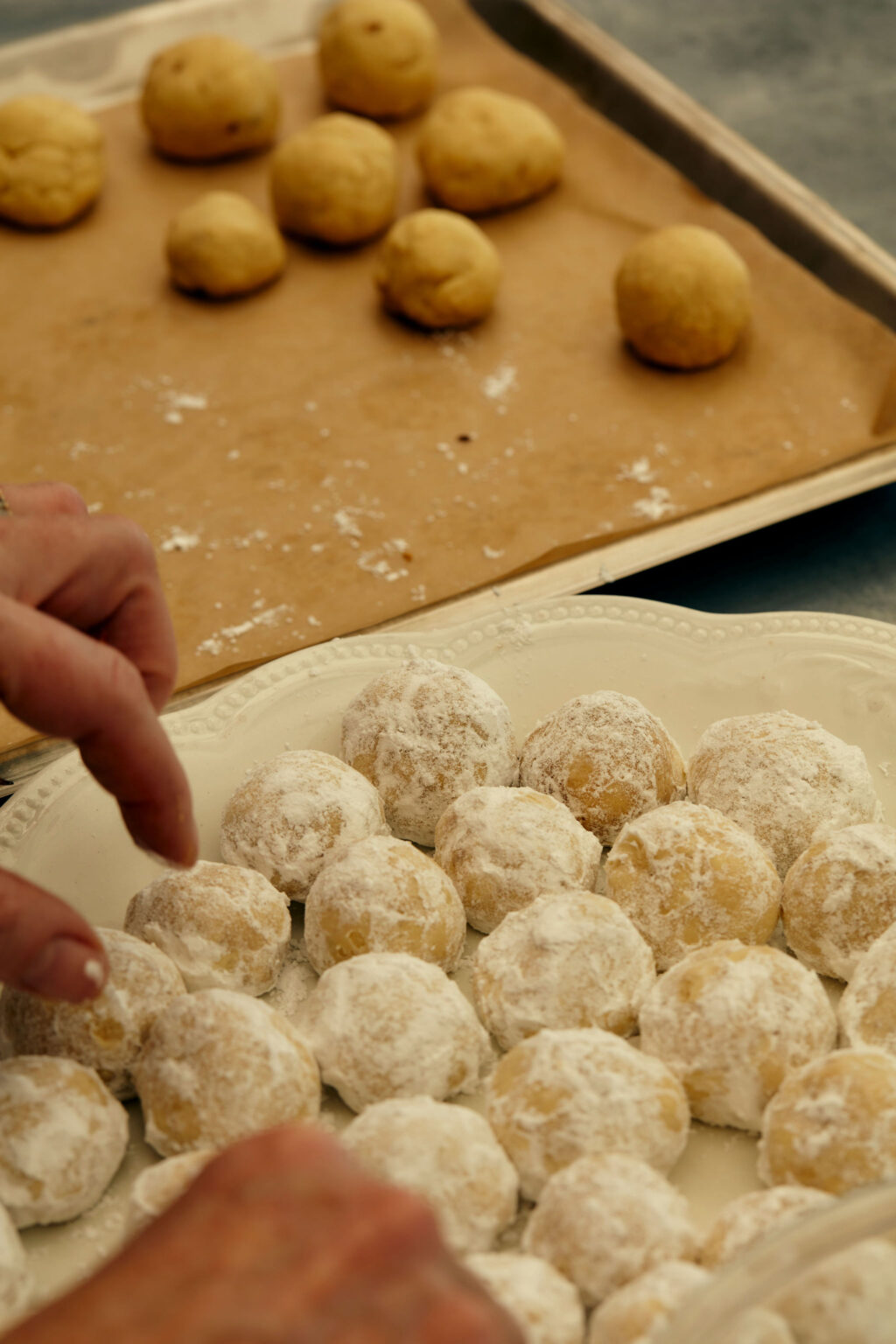Jewish Cooking Traditions Reinvented
After a long hiatus, we were excited to finally be able to host our long-awaited Jewish cooking class with Lisa Goldberg from Monday Morning Cooking Club (MMCC)! MMCC is the sisterhood from Sydney’s Jewish community and, through their project, they collect, test, curate, share, and preserve treasured recipes from the older generation for us, and from our generation for the future. The day was full of stories, hearty fare, and lots of laughter – and we were lucky to have our photographer and friend Phil there to capture all the magic!

A highlight of the day was definitely learning to make the braised pickled brisket. Jews living in Eastern Europe rarely had the money to buy pricey cuts of meat, and learned to make do with cheaper kosher cuts, like brisket, commonly overlooked for its toughness. When Jewish immigrants moved to the United States, they brought their love of brisket with them, and started pickling the meat to make corned beef, a delicious discovery especially when partnered with a couple of slices of rye bread. Lisa showed us how delicious pickled brisket could be when roasted with sliced onions and honey, basting frequently until the onions caramelize and turn golden. The final dish was glazed, sticky, and completely decadent.
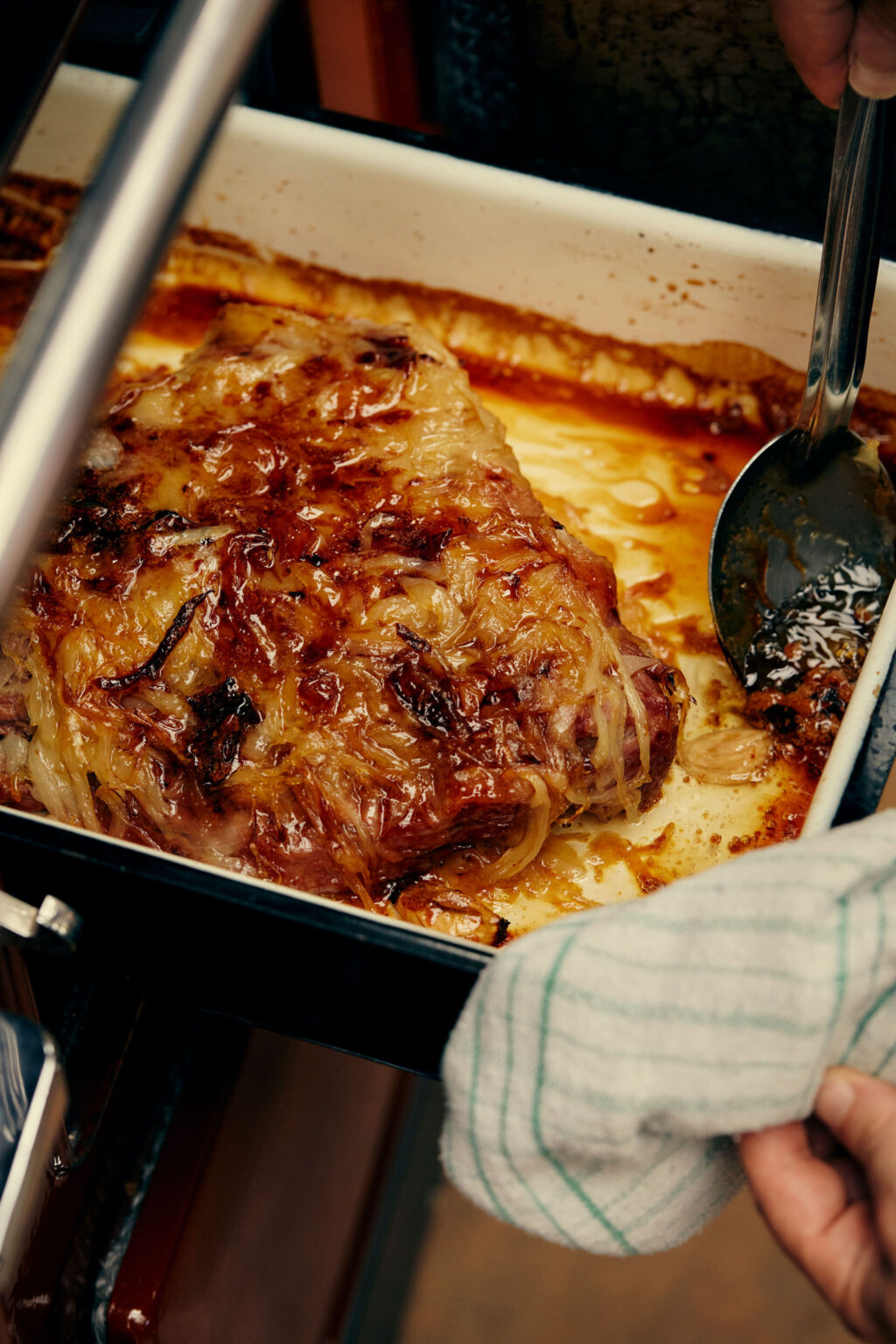
Another dish – taken from two Jewish classics, smoked salmon (lox) and pastrami, is salmon pastrami. Fresh salmon is coated in salt, sugar, and spices. After a day or two in the refrigerator, the fish is cured. It is then coated in ground ‘pastrami’ spices. The salmon pastrami is sliced to serve, perfect in a sandwich or bagel!
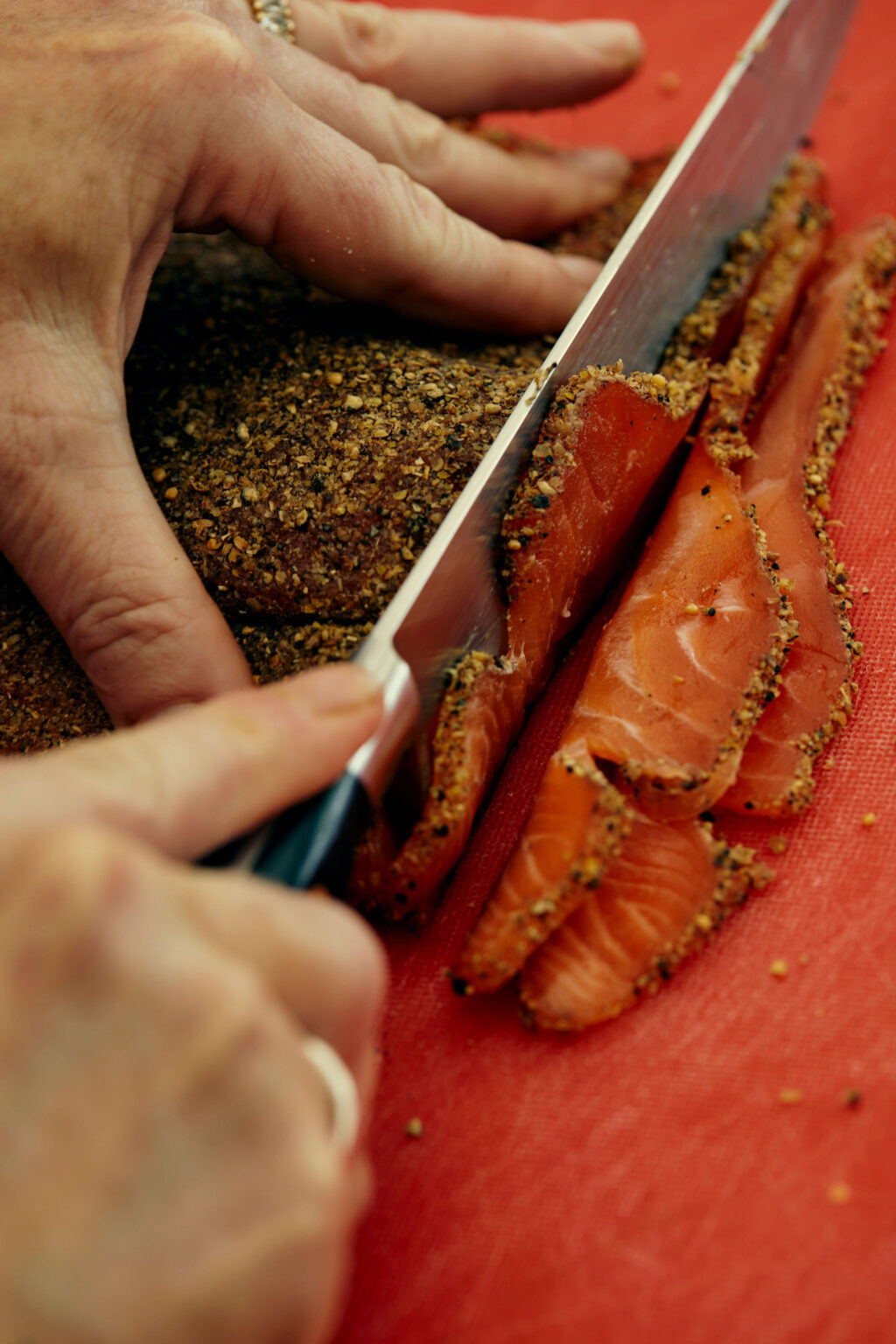
For the hands-on component of the class, everyone was encouraged to get their hands busy shaping challah. The braided egg-rich bread is the Jewish Sabbath-and-holiday bread, which is surrounded by folklore and tradition, and full of symbolism. On festive occasions, a blessing is said over two loaves, symbolizing the two portions of the manna that was distributed to the children of Israel during their Exodus from Egypt. The sesame seeds sprinkled on the bread also symbolize the manna that fell from heaven.
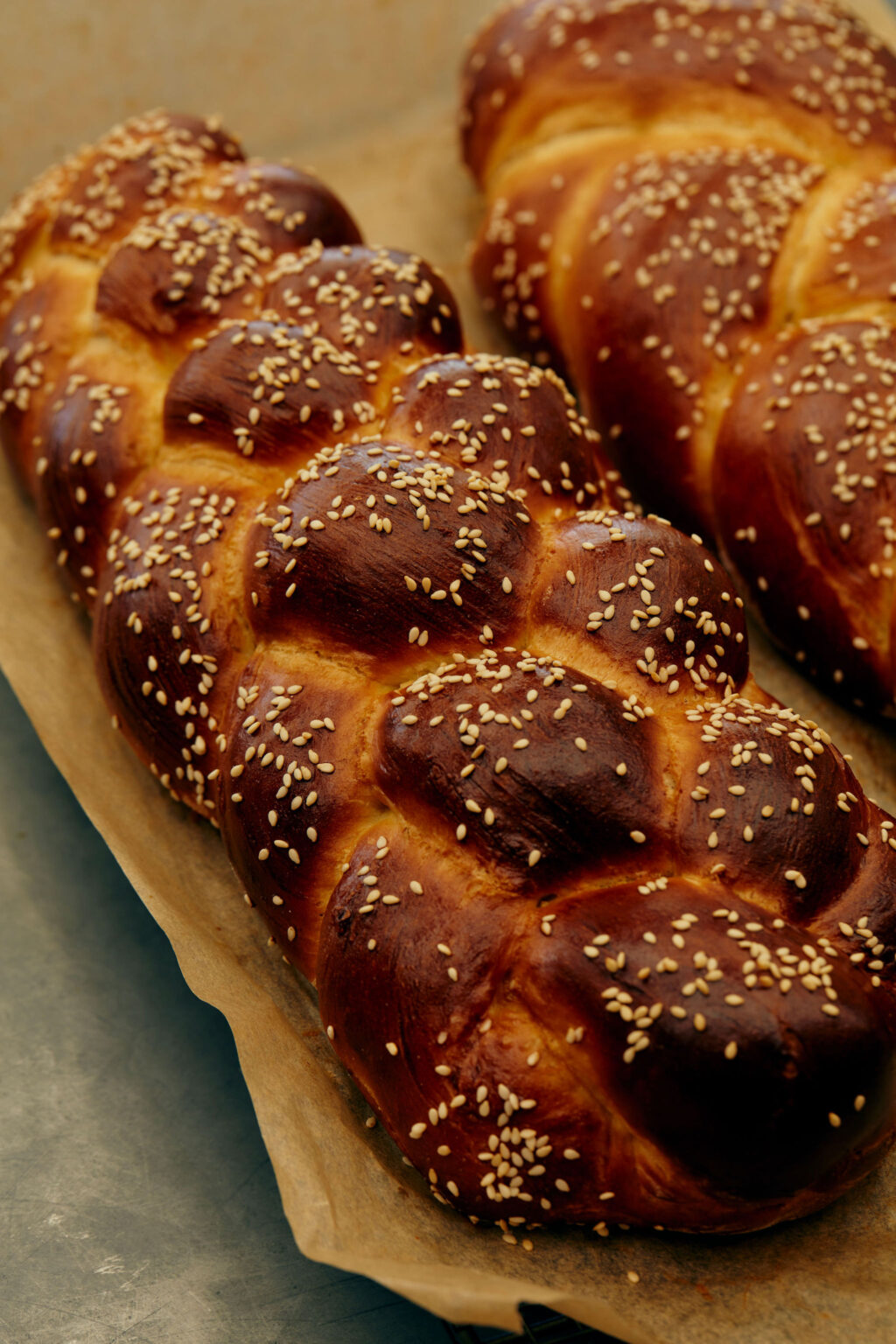
Challah is made in various sizes and shapes, all of which have a meaning. Braided ones, which may have three, four, or six strands, are the most common, because they look like arms intertwined and symbolize love. Round loaves, where there is no beginning or end, symbolize continuity.
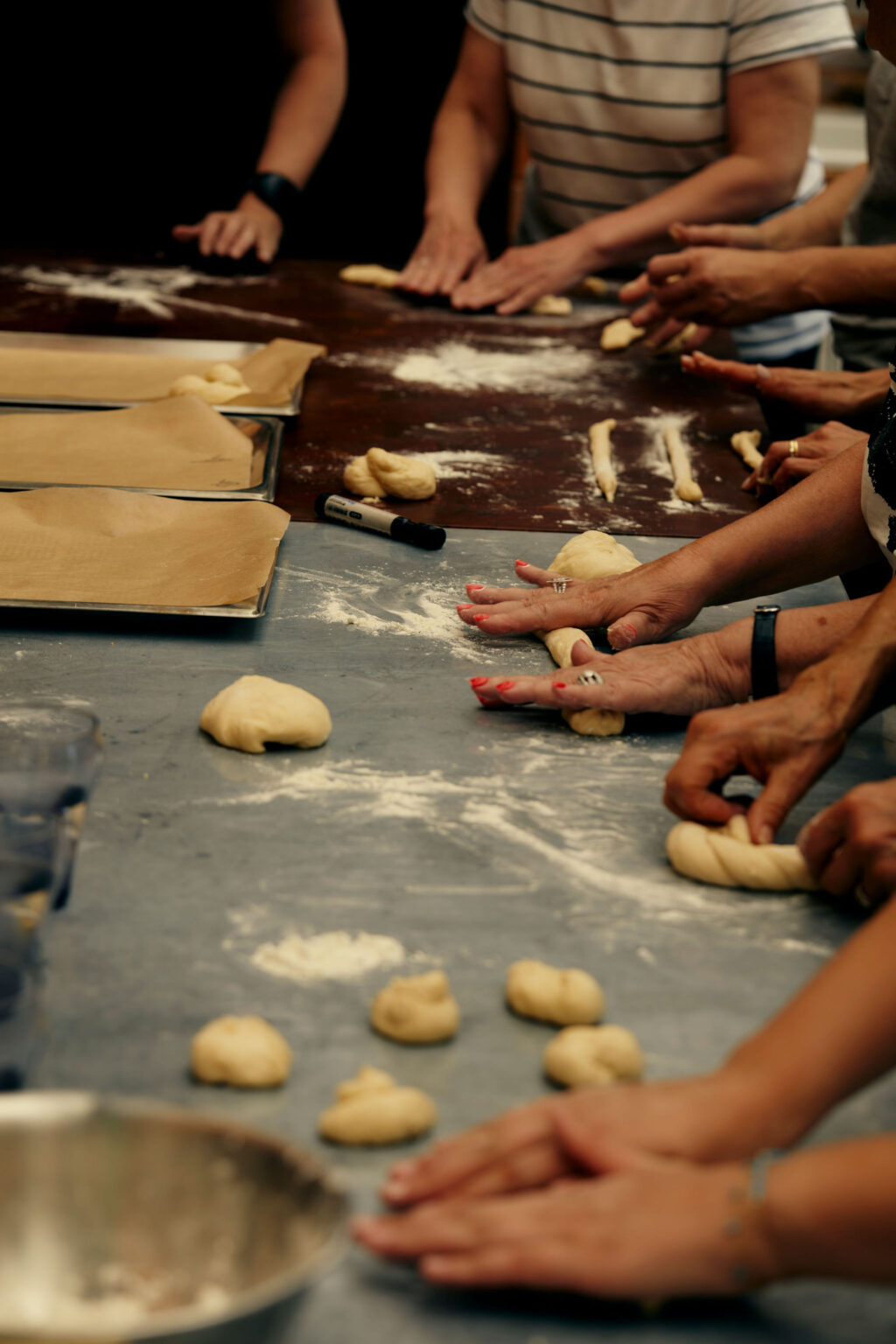
As a sweet finish to the meal, Lisa showed us how to make a lattice-topped ricotta cheesecake and maamoul, a traditional Middle Eastern shortbread cookie stuffed with dates, nuts, and cinnamon. They were all delicious and we were so lucky to have Lisa Goldberg at the Longhouse.
